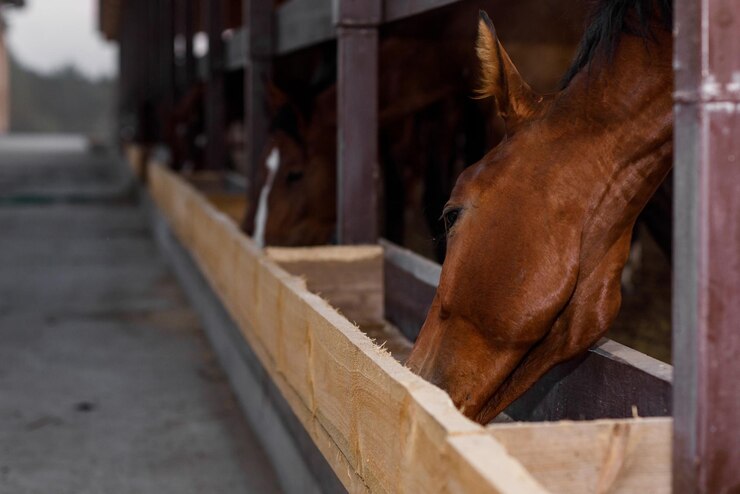When considering the dietary needs of horses, many horse owners ponder the question: Is corn good for horses? This inquiry is crucial because the health and vitality of your equine friends are significantly influenced by their diet. Corn is a common feed grain but understanding its benefits and drawbacks is essential for making informed decisions.
To answer this question, one must delve into the nutritional components of corn, its impact on horse health, and how it fits into a balanced equine diet. Let’s explore these aspects to better comprehend whether corn should be a part of your horse’s diet.

The Nutritional Profile of Corn
Corn is rich in carbohydrates, providing a high-energy source for horses. It’s particularly beneficial for performance horses requiring extra energy. However, its low protein content means it should not be the sole feed source. The high starch level in corn can pose risks of digestive issues if not fed correctly.
Energy Source
For horses involved in high-intensity work, corn can be an excellent energy booster. Its high carbohydrate content is easily converted into energy, helping horses maintain stamina and endurance during rigorous activities.
Low Protein Content
While corn is energy-rich, it lacks sufficient protein, a vital nutrient for muscle repair and growth. Thus, it’s crucial to supplement with other protein sources when incorporating corn into a horse’s diet.
Benefits of Feeding Corn to Horses
Feeding corn to horses can offer specific advantages, particularly when tailored to the horse’s activity level and dietary needs. Understanding these benefits can aid in making informed feeding choices.
Improved Energy Levels
As mentioned earlier, the high carbohydrate content in corn provides a quick energy release. This property makes it suitable for horses in need of an energy boost, especially in colder climates where maintaining body heat requires more energy.
Cost-Effective Feed Option
Compared to other grains, corn is often more affordable, making it an economically viable option for horse owners. Its availability and cost-effectiveness are appealing for those managing multiple horses.
Potential Risks of Feeding Corn
Despite its benefits, there are potential risks associated with feeding corn that must be considered to ensure the health of your horses.
Risk of Digestive Issues
The high starch content in corn can lead to digestive upsets, such as colic or laminitis, if not fed in moderation. Proper preparation and portion control are essential to mitigate these risks.
Imbalance in Nutritional Intake
Feeding too much corn can result in an imbalance of nutrients, particularly if not supplemented with adequate protein or fiber. It’s important to maintain a balanced diet to prevent deficiencies and health issues.
Balancing Corn in a Horse’s Diet
To safely incorporate corn into your horse’s diet, it’s crucial to balance it with other feed components. Here are some strategies to achieve this balance:
Supplement with Protein
Adding protein-rich feeds like alfalfa or soybean meal can help balance the low protein content in corn. This ensures that your horse receives the necessary nutrients for muscle development and repair.
Monitor Portion Sizes
Careful monitoring of corn portions can prevent overfeeding and the associated health risks. Gradual introduction and consistent portion control are key to avoiding digestive issues.
Conclusion
So, is corn good for horses? The answer lies in understanding its nutritional profile and potential risks. While corn can be a valuable part of a horse’s diet, it must be fed judiciously and balanced with other nutrients. By doing so, horse owners can harness its benefits while minimizing risks.
For more insights on equine nutrition, visit the MSD Vet Manual.

FAQs
Can horses eat raw corn?
Yes, horses can eat raw corn, but it’s essential to ensure it is processed correctly to avoid digestive issues.
How much corn can a horse eat daily?
The amount can vary based on the horse’s size and activity level. It’s best to consult a nutritionist for tailored advice.
Is corn suitable for all horses?
No, corn may not be suitable for horses with specific health conditions like metabolic syndrome. It’s crucial to consider individual dietary needs.
For further reading on horse diet and nutrition, explore articles on feeding horses and electrolyte supplements.
This article contains affiliate links. We may earn a commission at no extra cost to you.








